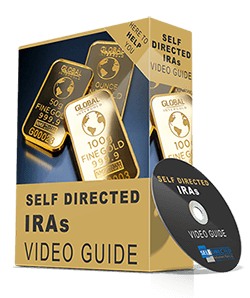If you work for a non-profit or tax-exempt organization, you might not have access to a 401(k) for your retirement savings. Instead, these types of employees often have access to the 403(b), which is a similar employer-sponsored investment account. The 403(b) operates similarly to a 401(k) but with a few minor differences. Let’s go over the details of the 403(b) together.
What Is a 403(b) Plan?
The 403(b) is a tax-advantaged retirement plan designed for employees of non-profit organizations such as churches, hospitals, and some public-sector workers including teachers and librarians.
One of the key benefits of a 403(b) is the tax-efficient growth it provides for your retirement savings. Your investments in the account are exempt from capital gains taxes, enabling you to accumulate wealth for your golden years.
Your contributions to a 403(b) account are made through deductions from your paycheck. In a traditional 403(b), these contributions are taken before taxes, reducing your taxable income and lowering your current tax bill. However, you will owe income taxes on your withdrawals from the account when you retire.
If your employer offers the option of a Roth 403(b), you have the choice to fund the account with post-tax dollars. This means that you won’t owe any taxes on your withdrawals in retirement, including any investment earnings, no matter how much your money has grown.
How Does a 403(b) Plan Work?
With a 403(b) plan, you have control over how much money you want to save for retirement. You can choose to contribute a percentage of your salary or a fixed dollar amount, and these contributions will be automatically deducted from your pay and invested in the options you select.
Additionally, some employers may offer to match your contributions to the plan. This means they will add money to your account based on the amount you contribute, effectively increasing your retirement savings. You should strive to contribute at least up to the maximum matching amount offered by your employer, as it’s essentially free money.
However, it’s important to be cautious when choosing a 403(b) plan. These plans typically have fewer investment options compared to 401(k) plans and may contain insurance products such as annuities with low returns and high fees and surrender charges. To maximize your returns, it’s best to stick with well-performing growth stock mutual funds.
403(b) Maximum Contributions
Just like other employer-sponsored retirement plans, the 403(b) plan also has restrictions on contributions, penalties for early withdrawals, and tax consequences. For the year 2024, the contribution limit for a 403(b) plan is set at $23,000, but those who are over 50 years old can contribute up to $30,500 to make up for the lost time.
Employees with a 403(b) plan also have an advantage over those with a 401(k) plan through the 15-year rule. If you’ve worked for your organization for at least 15 years, you can add an additional $3,000 to your 403(b) plan each year.
In 2024, the total amount that can be contributed to your 403(b) plan between your own contributions and your employer’s contributions is capped at either $69,000 per year ($76,500 for those over 50) or your full annual salary, whichever is lower.
Advantages and Disadvantages of 403(b) Plans
Advantages of 403(b) Plans:
- You can save for retirement with the advantage of tax deferral.
- The enrollment process is simple as your employer will handle most of the paperwork.
- You can take advantage of high annual contribution limits.
- Contributions to your account lower your taxable income for that year.
- If you’ve worked for the same organization for at least 15 years, you are eligible for an extra $3,000 catch-up contribution.
Drawbacks of 403(b) Plans:
- If you withdraw funds before age 59 1/2, you will face a 10% additional IRS tax.
- These plans often come with higher fees compared to other retirement plans.
- Fewer employers offer contribution matches for 403(b) plans as compared to 401(k) plans.
- The investment options may be limited, depending on your experience.
- It is important to carefully evaluate the annual fees and costs associated with a 403(b) plan before enrolling. Consider opening a separate IRA if you need more options.
403(b) Plans vs. 401(k) Plans
| Feature | 403(b) Plan | 401(k) Plan |
|---|---|---|
| Eligibility | Employees of tax-exempt organizations, including public schools and universities | Employees of for-profit companies |
| Investment Options | Limited to annuities or mutual funds offered by insurance companies | Wide range of investment options, including mutual funds, stocks, and bonds |
| Withdrawal Rules | Withdrawals may be subject to 10% penalty before age 59 1/2, and required minimum distributions at age 70 1/2 | Withdrawals may be subject to 10% penalty before age 59 1/2, and required minimum distributions at age 72 |
Final Thoughts
A 403(b) plan is a great retirement savings option for individuals working in the public education, hospital, or non-profit sectors. It allows you to save pre-tax money and potentially receive an employer contribution, which can significantly increase your retirement savings. As with any retirement plan, it should be tailored to your specific goals and needs. Before investing in a 403(b) plan, make sure to research the investment options available to you as well as the fees associated with them.
Need Any Help? Contact Us Now!
Need assistance organizing your finances?
FAQs
If I contribute to a 403(b) through work, can I also contribute to an IRA?
You can add money to both a Roth IRA and a Traditional IRA, in addition to your 403(b) retirement account. However, there are restrictions on how much you can contribute to a Roth IRA based on your income. For a Traditional IRA, there are no income restrictions, but there may be limits on whether you can claim your contributions as a tax deduction.
Is a 403(b) better than a 401(k)?
For many workers, a 403(b) retirement plan is a better option than a 401(k) because it offers the possibility of making larger catch-up contributions. If you’ve been working for 15 years or more, you can add extra funds to your 403(b) account beyond your regular contributions and any employer contributions. This is not an option with a 401(k) plan. Despite this difference, 401(k) and 403(b) plans are largely similar in terms of how they work and what they offer.
Got More Questions?



